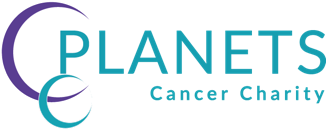FUNDRAISING FOR A CURE
Donating is simple, fast and totally secure. Your details are safe with us and we will never sell them
Why we need research
The PLANETS team are committed to research, there are many reasons for this, several types of research and many ways that we contribute to research.
The Reasons:
- Improving understanding of the causes of the tumours that we treat
- Improving understanding of how tumours grow and spread
- Finding new ways of detecting tumours
- Improving understanding of how potential treatments may work
- Evaluation of new treatments
- Assessment of how tumours and the treatments we use affect patients
- Looking at how we can improve the quality of life for patients
There are 3 types of research that link together:
- Basic science, this is lab based work that identifies and describes the processes that occur in health and disease. These fundamental discoveries are essential to help us come up with the ideas for the next type of research.
- Translational research, this is the process whereby we try and convert the discoveries from basic science into ideas that could possibly be used to detect or treat tumours. These theories are then tested in the lab to try and see whether they will work in practice and should be tried in patients.
- Clinical research, this is the final stage where we take the new treatments and tests that have been developed through translational research and evaluate them in patients, looking to see if they improve outcomes and give better results than established methods.
How we can contribute:
- Collecting and storing samples of tumours, normal tissue and samples of bodily fluids such as blood, bile or pancreatic juice so that they can be used for research.
- Participating in research into the mistakes in the genetic code (DNA) within tumour cells that make them different from normal healthy cells and explain why they spread and how they grow
- Involvement in studies looking at the detection of tumour cells in the circulation to enable us to understand what makes tumours spread.
- Involving patients in trials comparing new treatments (such as drugs like Everolimus) or combinations of treatments with other older treatments to find out if we can improve outcomes.
- Asking patients to get involved in questionnaires and quality of life studies to see what the short and long term effects of treatments are on patients symptoms and overall well being.
Current Projects:
- The NET Tumour Bank. We set up our tumour bank in 2010 with a charitable donation and PLANETS has supported it since 2011. We now have the largest bank of fresh frozen NET tumour samples in the UK and one of the largest in the world. This is an incredible resource of tumour material that we are now developing plans to use for genetic research in collaboration with Mr Alex Mirnezami from the Southampton University and Dr Chrissie Thirlwell. PLANETS are planning to fund the appointment of a full time lab based research technician to start this work, in conjunction with Ipsen the pharmaceutical company that developed and make Lanreotide. We are also looking at ways of detecting cancer cells as they start to spread in the circulation.
- The Pancreatic Tumour Bank. following on from the success of the NET tumour bank, PLANETS is now supporting the pancreatic tumour bank. We are currently in discussions with surgeons and researchers from the other major pancreatic cancer centres at Bart’s, Oxford, Manchester, Liverpool and Newcastle into how we can join a collaborative research project that will look at mapping the genetic triggers for pancreatic cancer. This project has been funded nationally by the pancreatic cancer fund charity and supported locally by PLANETS who will provide funding for the lab based costs in Southampton. This is an amazing opportunity to be involved with some of the most important research in this field world wide.
- Clinical assessment of the Delcath PHP Chemosaturation technique in patients with inoperable liver cancers. This isolates the liver from the rest of the circulation and soaks it in high dose chemotherapy before filtering the drugs from the blood and returning it to the circulation. We are the only centre in the UK using and evaluating this technique and one of fewer than 10 centres worldwide experienced in this highly complex treatment.
These are just some of the local, national and international studies that we have recently been involved with or are planning to actively recruit patients into:
- RADIANT 4 study of Everolimus in patients with advanced neuroendocrine tumours
- FOXFIRE study of Sirtex treatment in patients with advanced secondary liver cancer
- SCORPION study of Streptozocin based chemotherapy in NETS
- ESPAC 4 and 5 studies into the use of chemotherapy for consolidating results after pancreatic cancer surgery.
- BILCAP study of chemotherapy after surgery for bile duct and gallbladder cancer.
- NEW EPOC study of chemotherapy before and after surgery for secondary liver cancers
- PETPANC the first international study into the use of PET CT scanning in assessing pancreatic cancer.
- RISC study, this evaluates surgeons assessment of surgical and anaesthetic risk from liver, biliary and pancreatic surgery and compares it with statistical models of predicting risk to see if we can get better at identifying and preventing complications from major surgery.
We hope this gives you some understanding of how we are involved in research and how supporting PLANETS can help us to support research to keep us moving towards the answers to treating and curing these cancers.
One of the main aims of the PLANETS charity is to raise funds for our tumour bank which stores samples of blood and tumour cells from patients with pancreas, liver and NET cancers for research purposes.
The tumour bank provides researchers with access to rare tumour tissue allowing them to correlate their findings with clinical and genetic information.
Tumour samples are taken from discarded tissues not needed for pathologic diagnosis, after patients undergo surgery to remove the tumour.
Rare disorders such as NETs are under-supported in the research budgets of conventional grant funding organisations. In addition more preliminary data is frequently required to secure appropriate funding as funds are generally allocated to conditions with a greater impact on public health. Thus any funding at the present stage would help us to have a considerable competitive edge in securing further external grant funding for larger scale studies and clinical trials.
How is the money raised spent?

PLANETS Receive £10,000 Grant from The Hospital Saturday Fund
Thank you to John Greenwood, Trustee of the The Hospital Saturday Fund, for visiting us on Monday and bringing this incredible grant of £10,000 to support our IORT (Intra Operative Radiotherapy) machine. This will enable us to continue delivering this lifesaving treatment at University Hospital Southampton – the only centre in the UK currently offering this unique targeted form of …
Subscribe to our Newsletter
Get informed about the latest news straight to your inbox


